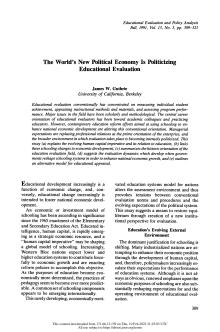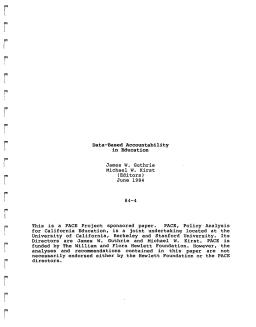Published
Summary
Traditionally, educational evaluation has focused on measuring student achievement and program performance. However, education reforms are now linking schooling to economic development, leading to a shift towards managerial expectations and politicization of the field. This article explains the human capital imperative and its relation to education, summarizes the history of educational evaluation, and outlines an alternative model for educational appraisal in the context of government-led education system reforms aimed at enhancing national economic growth.
Published
Summary
This report explores the role of accountability in school improvement and its potential drawbacks. While accountability can provide feedback, reorient action, and justify action, it can also lead to gross distortions and may not sufficiently incentivize teachers. The authors argue for a consensual view of the teacher's role and for parsimonious accountability schemes that enhance the quality of life among teachers. They propose design considerations that can improve the effectiveness of testing and controls to enhance the teaching profession.

